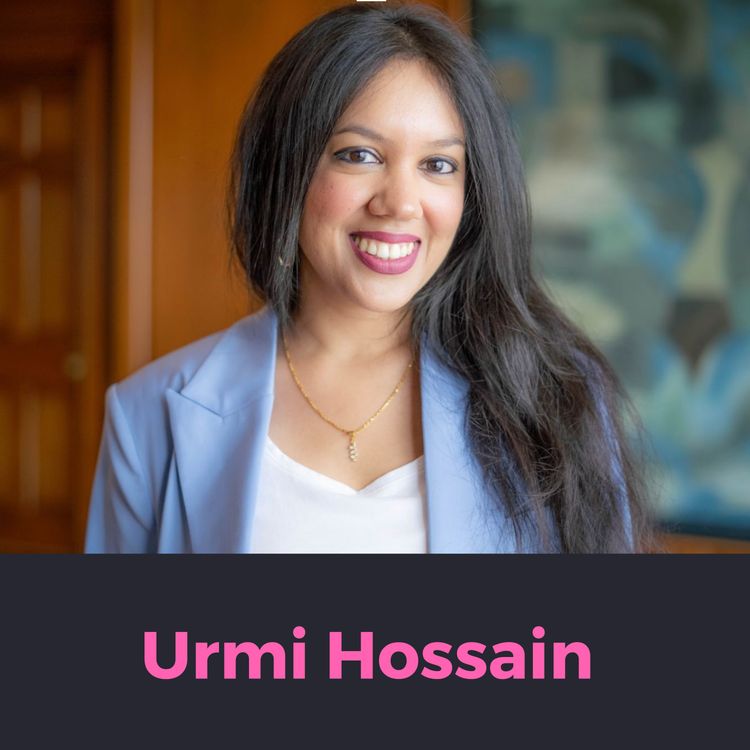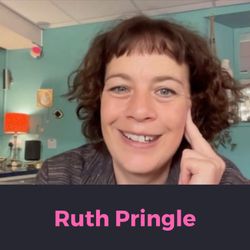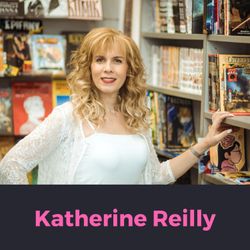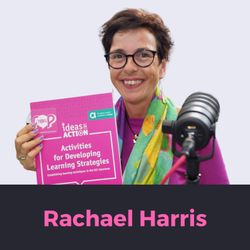Share

TESOL Pop
Finding What Works for You as a Learner with Urmi Hossain
Multilingual speaker Urmi Hossain joins us to share her experiences learning multiple languages and the personalised strategies she’s developed. Urmi’s learning journey highlights the importance of finding methods that resonate with personal goals, interests, and cultural backgrounds.
Watch the episode with closed captions here.
Learning with Purpose
Urmi discusses how each language she’s learned holds a different significance in her life, from family connections to career advancement. By setting clear goals, she maintains motivation and purpose in her studies.
Overcoming Dialect Differences
Living in Canada, Urmi encountered distinct French dialects that challenged her listening skills. She shares how she adapted to these variations, gaining confidence in her ability to comprehend diverse accents and expressions.
Staying Motivated
Urmi stays driven through vision boards, regular goal check-ins, and strategic reminders. She believes motivation plays a vital role in language learning success, especially when progressing independently.
ABOUT
Urmi Hossain is Bengali by blood and Italian by birth. She works in the financial services industry in Canada, where she is currently residing. She is a self-published author, speaker, blogger, polyglot, and mentor. She is the holder of the CFA charter as well as the CAIA charter. Her first book is: Discovering your identity, a rebirth from interracial struggle. She is an advocate of women's empowerment and very passionate about teaching and mentoring other girls and women. She is part of the organisation called Women In Leadership for the Victoria Chapter in Canada as the social media lead where she spreads the message of gender equality and more women in leadership positions. She enjoys being a promoter of self-investing and personal development. Fun fact: she speaks 4.5 languages - Italian, Bengali, English, French and Spanish being the .5
FOLLOW
Love what we do? Say thanks with a coffee.
CREDITS
Producer Laura Wilkes
Editor Haven Tsang
Thanks to our inspiring guest, Urmi Hossain.
More episodes
View all episodes

10. Curating Immersive English Experiences with Ruth Pringle
14:36||Season 10, Ep. 10Founder of Blue Noun, Ruth Pringle, discusses her innovative approach to immersive English learning. Ruth shares how combining outdoor exploration, artistic activities, and community engagement transforms English learners into confident English users.Watch with closed captions here.What is Blue Noun?Ruth introduces Blue Noun, a language hub in Crieff, Scotland, surrounded by the stunning landscapes of Perthshire. Unlike traditional classrooms, Blue Noun offers English learners real-life opportunities to practice language skills while immersing themselves in the local culture.Learner to User: The Mindset ShiftRuth highlights the distinction between English learners and English users. She shares how focusing on using "wonky" English in authentic settings can help individuals overcome self-doubt and build confidence in their abilities.Tailored ExperiencesEach experience at Blue Noun is unique. Ruth shares examples of activities, like visiting local artist studios, participating in mosaic workshops, and exploring the scenic outdoors. These activities help learners pick up workplace-relevant vocabulary and build meaningful connections.Power of Playful LearningRuth explains how immersive and tactile experiences—like creating art or having informal conversations—allow learners to integrate English naturally into their identities, making language learning less about perfection and more about connection.ABOUTRuth offers English language coaching holidays in Perthshire, Scotland. These are curated immersive experiences that explore Scotland's landscapes and cultures and give ‘1000s of micro moments of you being you, in English’. Her background is in the arts. She spent 10 years exhibiting as an installation artist around Europe, UK & the USA and began teaching English to support this – first in a corporate language school, then freelance for art and architecture schools. She began the Blue Noun Hub 5 years ago, to unite L1 & L2 English users through stories, projects and a love of natural Scotland.REFERENCES & RESOURCESBlue Noun - Real Conversation-based English Holidays, Courses and CoachingView the gallery of photos of Blue Noun Immersive English Holidays.Love what we do? Say thanks with a coffee.https://ko-fi.com/tesolpopCREDITSProducer Laura WilkesEditor Haven TsangThanks to our lovely guest, Ruth Pringle.
9. Teaching Tips for Translanguaging with Josianne Block
13:33||Season 10, Ep. 9Senior Teaching Associate Josianne Block shares insights on how embracing learners’ linguistic resources can enhance communication, foster inclusivity, and create a more dynamic learning environment.Closed captions here.What is translanguaging?Josianne defines translanguaging as the natural blending of languages to communicate effectively. She shares real-world examples, such as using gestures, words from other languages we know, and cultural knowledge to convey meaning.The role of translanguagingJosianne explains how translanguaging reflects the interconnected nature of languages in our minds. Far from being a shortcut, it’s a powerful tool for building confidence and fostering curiosity among learners.Classroom strategiesJosianne describes how she incorporates translanguaging by:Starting lessons by writing vocabulary words in learners' languages.Exploring cross-linguistic similarities with idioms and expressions.Creating visual displays that highlight the linguistic diversity of her students.Safe learning spacesJosianne emphasises the importance of establishing clear guidelines for using learners’ first languages. She shares how this approach helps students transition from relying on their native languages to gaining confidence in English.Quick ideas to tryVocabulary Connections: Begin a lesson by having students write translations of key vocabulary in other languages they speak on the board to spark engagement.Compare Idioms: Discuss an English idiom and invite students to share similar expressions in their own languages.Celebrate Linguistic Diversity: Create classroom charts or displays featuring common phrases in all the languages spoken by your learners.ABOUTJosianne is based in Malta, a small island in the Mediterranean. She has over ten years of teaching experience in English and currently works as a senior teaching associate at the University of Malta. Josianne holds an M.A. in Applied Linguistics and TESOL and is also qualified to teach Italian and Maltese as foreign languages. Having taught several integration programmes, she is particularly interested in language dynamics and linguistic diversity within multilingual contexts. She also actively participates in local and international ELT conferences and enjoys conducting research.REFERENCESGarcia, O., & Wei, L. (2014). Translanguaging: Language, Bilingualism and Education. Palgrave Macmillan.Kerr, P. (2014). Translation and Own-language Activities. Cambridge University Press.Translanguaging Guides. CUNY-NYSIEB. (2021). Available at https://www.cunynysieb.org/ translanguaging-re Accessed on 19/11/2024.Love what we do? Say thanks with a coffee.https://ko-fi.com/tesolpopCREDITSProducer Laura WilkesEditor Haven TsangThanks to our inspiring guest, Josianne Block.
8. From Teacher to Teacherpreneur with Shélynn Riel
15:02||Season 10, Ep. 8Shélynn Riel explores what it means to be a teacherpreneur and shares insights on how teachers can transition to entrepreneurship and leverage their skills to build flexible, impactful careersWatch the episode with closed captions here.What is Teacherpreneurship?Shé describes a teacherpreneur as an educator who leverages their teaching skills to start and run their own business. This can include freelancing, consulting, creating educational materials, and more.Essential Skills for TeacherpreneursTeachers already possess numerous skills that are useful in business, such as communication, organisation, flexibility, and empathy. Shé shares how these skills can be applied to tasks like marketing, lesson planning, and managing a business.Paths to TeacherpreneurshipShé outlines common paths, such as:Online Language Company Freelancer: A structured entry point where teachers work for language companies that handle logistics and curriculum.Marketplace Tutor: Teachers set their own rates and create course content while using tutoring platforms like Preply or Cambly to connect with students.Independent Teacherpreneur: Teachers establish their own brand, market their services, and have complete control over their business and teaching methods.ABOUTShélynn (Shé) Riel is Bridge's Expert Series Webinar Moderator and IDELTOnline instructor. She holds a Master of Education in TESOL and over fifteen years of experience in education. Throughout her career, Shé has held positions of leadership in curriculum development and program administration at universities and non-profits in the U.S., served as a facilitator for various digital exchanges for global English teachers, and delivered professional development to teachers on the ground in Argentina, Bangladesh, and China. Her interests include holistic teacher development, learner identity, and decolonial ethics in the language classroom. She is the co-creator of The Teacher Think-Aloud Podcast, which focuses on reflective practices for teachers around the world.REFERENCESBridge Teacherpreneur AcademyLove what we do? Say thanks with a coffee.https://ko-fi.com/tesolpopCREDITSProducer Laura WilkesEditor Haven TsangThanks to our inspiring guest, Shélynn Riel.
6. Uncovering Hidden Meaning in our Teaching Materials with Katherine Reilly
12:27||Season 10, Ep. 6Author and Teacher Trainer Katherine Rilley explores the role of Critical Discourse Analysis (CDA) in English language teaching and materials. Katherine explains how CDA can help educators identify hidden meanings, assumptions, and power dynamics within their teaching materials so we can make changes that foster a more inclusive and supportive environment.Watch with closed captions here.Understanding Critical Discourse Analysis (CDA)CDA is an approach that examines how language and imagery in teaching materials can shape social realities, reinforce stereotypes, and influence ideologies. Katherine emphasises the importance of ensuring materials reflect diverse voices, backgrounds, and experiences.Gender and Stereotypes in TextbooksKatherine shares examples of how textbooks can reinforce outdated gender roles, such as referring to professionals as "policemen" or "firemen" instead of using gender-neutral terms. She discusses how such representations can limit students' perceptions of their future potential.Adapting Materials for InclusivityKatherine stresses that no single textbook can fully meet the needs of all learners. Teachers should adapt materials to reflect different cultures, abilities, and perspectives. She encourages educators to use inclusive visuals, update resources, and incorporate diverse voices.Actionable Steps for TeachersKatherine’s top tips for educators:Evaluate your materials to ensure they are inclusive and cater to all students’ needs.Research to find materials that promote diversity and foster greater diversity and inclusion.ABOUTKatherine Reilly is an ELT Teacher Trainer and Author of numerous publications in children’s literature, teaching materials and ICT. She has taught Language Methodology and Materials Development at the University of Athens, previously at the Technological University of Cyprus and finally, at the Oxford TEFL Training Center for the Innovate ELT Conference. Her expertise includes training school faculties in inclusive teaching methodology, diverse educational materials adaptation, and the application of Critical Discourse Analysis to examine socio-cultural dimensions.FOLLOWBlogLinkedInLove what we do? Say thanks with a coffee.https://ko-fi.com/tesolpopCREDITSProducer Laura WilkesEditor Haven TsangThanks to our inspiring guest, Katherine Reilly.
5. Start Building the Career You Want with Martin Hajek
12:45||Season 10, Ep. 5Author Martin Hajek talks about the importance of role models and access to information to make informed decisions about our careers in the English Language Teaching industry. Martin shares three stories from his latest book More Than A Gap Year Adventure that demonstrate the wide range of career paths that are possible.Watch with closed captions here.Inspiration Behind the BookMartin shares how his training as a journalist inspired him to start researching and compiling various essays from educators around the world for More Than A Gap Year Adventure.Challenging Negative NarrativesPart of the inspiration for the title of the book was to challenge the perception that work in the industry is temporary and lacking in professional training and roles. He goes on to talk about the role click-through TEFL certificate course providers have to play in perpetuating this misconception.Three Different StoriesMartin shares three very different essays featured in More Than A Gap Year Adventure that sheds light on work in assessment and material design as just a few examples of what is possible in the ELT field.ABOUTMartin Hajek is a freelance ELT professional based in Colombia. Originally a journalist, he decided to sign up for a CELTA course at the age of 30. Martin immediately fell in love with teaching English and started looking for a way to move beyond entry-level jobs, which led him to complete a DELTA. Martin focuses on career development, language assessment, phonology, and teaching listening skills. In February 2024, he self-published More Than a Gap Year Adventure, a collaborative book aimed at those who wish to have a long-term career in the ELT profession.REFERENCESHajek, M. (2024) More Than a Gap Year Adventure: How to Make a Long-Term Career out of TEFL. IndependentFOLLOWBlog TEFL in ColumbiaLinkedInLove what we do? Say thanks with a coffee.https://ko-fi.com/tesolpopCREDITSProducer Laura WilkesEditor Haven TsangThanks to our inspiring guest, Martin Hajek.
4. Learning Strategies that Get Results with Rachael Harris (Recorded at IATEFL 2024)
11:33||Season 10, Ep. 4Author Rachael Harris discusses her latest book, Activities for Developing Learning Strategies, and how her experience teaching teens and young learners inspired her to focus on inclusive practices and the importance of strategies to boost students' performance. The conversation explores examples from Rachael's book, emphasising direct and indirect learning strategies that can be applied in the classroom and beyond.Watch with closed captions here.Inspiration Behind the BookRachael shares how her experience with teens and young learners inspired her to write Activities for Developing Learning Strategies. She emphasises the importance of teaching students how to learn, which can significantly boost their performance and confidence.Direct and Indirect Learning StrategiesRachael outlines the two main types of strategies covered in the book: direct strategies (like vocabulary memorisation) and indirect strategies (such as goal setting and motivation). Both play a critical role in enhancing learning and can be applied across different subjects.Goal Setting and Quick WinsOne of the most effective techniques Rachael uses is goal setting, where students break down large goals into manageable tasks. The “quick wins” strategy helps maintain motivation by encouraging students to complete small, easy tasks when they feel stuck or demotivated.Scientific Basis for Learning StrategiesRachael’s activities are grounded in research, particularly a meta-analysis that shows the most effective learning techniques. She encourages her students to focus on proven methods like spaced practice and self-testing, instead of relying on less effective techniques like re-reading and highlighting.ABOUTRachael Harris has taught ELT, literature & current affairs in primary & secondary schools in Geneva for over 15 years. Up until recently, she was the joint coordinator for IATEFL Inclusive Practices & SEN special interest group. Her latest book Activities for Developing Learning Strategies is a collection of tried tested strategies, designed to help learners succeed in the language classroom and beyond.REFERENCESDunlosky, J. et al (2013) 'Improving Students’ Learning With Effective Learning Techniques: Promising Directions From Cognitive and Educational Psychology.' Psychological Science in the Public Interest (PSPI) Volume 15, pp. 4–58 Harris, R. (2023) Activities for Developing Learning Strategies. DELTA Publishing. FOLLOWBlog Fab English IdeasLinkedInLove what we do? Say thanks with a coffee.https://ko-fi.com/tesolpopCREDITSProducer Laura WilkesEditor Haven TsangThanks to our wonderful guest, Rachael Harris.
3. Power up Your Professional Development with Experiential Learning with Kirsten Holt
13:08||Season 10, Ep. 3Kirsten Holt, founder of Creativity Sown, talks about experiential learning in teacher development. In this episode, Kirsten shares practical tips for getting started and highlights the value of building a community to exchange ideas and support growth.Watch this episode with closed captions here.KEY TALKING POINTSWhat is experiential learning?Kirsten explains that experiential learning involves applying knowledge in a practical setting (e.g., a classroom), followed by reflection and adjustment. This process helps teachers improve their teaching methods by learning from both successes and mistakes.Iterative Process of LearningTeachers are encouraged to try new activities, reflect on their outcomes, and make adjustments. This cycle of testing, analysing, and repeating leads to deeper learning and continuous professional development.Collaborative and Reflective PracticeExperiential learning thrives in a collaborative environment where teachers share ideas, reflect on their experiences, and help each other improve. It helps foster a positive, engaging staff room culture or even an online community for solo practitioners.Practical Applications and Resources:Kirsten highlights how experiential learning can be applied to new technologies, such as AI, by experimenting with different teaching tools and approaches. She also gives the example of Creativity Sown, where teachers can exchange ideas and receive feedback.ABOUTKirsten is based in Brighton, UK where she runs Creativity Sown, a company providing editorial, writing, training and education consultancy services. This encapsulates her 30 years’ experience in education, first in teaching, teacher training and school management, then in publishing, with her passion in training and mentoring. She has written course material for kindergarten learners through to adults, blog content and classroom resources for teachers and teacher trainers; designed and run face-to-face conferences, events online and training programmes, and edited hundreds of books! She is also an international conference speaker, a British Council ELTons judge and has served on the IATEFL MaWSIG and PronSIG Committees.FOLLOWWebsite Creativity SownLinkedInLove what we do? Say thanks with a coffee.https://ko-fi.com/tesolpopCREDITSProducer Laura WilkesEditor Haven TsangThanks to our inspiring guest, Kirsten Holt.
2. Setting Students up for Success in the Workplace with Leo Wu
13:07||Season 11, Ep. 2English language trainer Leo Wu shares insights into tasks he uses in his classes to support his Business English learners in developing essential soft skills for the workplace. In this episode, Leo explains why communication, rather than just language proficiency, is key to success in the business world.Watch this episode with closed captions here.KEY TALKING POINTSMisconceptions in Business English EducationLeo discusses how many students, especially in Taiwan, see Business English as grammar and vocabulary-focused, rather than as a tool for effective communication in the workplace. Leo goes on to highlight the importance of building soft skills like confidence, teamwork, and interpersonal communication to succeed in real-world business environments.Classroom ActivitiesLeo walks through tasks and activities he uses in classes, such as mock business meetings, writing appreciation emails, and icebreaker activities, that foster teamwork and improve students' ability to communicate effectively.Test Preparation versus Communication SkillsLeo touches on the need to balance test-focused learning with practical language use to help students excel both academically and professionally.ABOUTLeo Wu, also known as Wuber on social media, is an ESL English teacher and trainer based in Taiwan. Over the past thirteen years, Leo has worked with learners of all ages in various online and offline settings. Currently, he is focused on teaching business-related content to professionals. He teaches at ILI Language Center(文化大學語言中心), and AMC English school, and also provides my private personalised English training lessons through his social media channels. He believes that everyone is capable of speaking languages beautifully and confidently - something that shines through in all the work he does.FOLLOW LEOTikTok @wuberenglishInstagram @wuberengFacebook @wuberengLove what we do? Say thanks with a coffee.https://ko-fi.com/tesolpopCREDITSProducer Laura WilkesEditor Haven TsangThanks to our lovely guest, Leo Wu.